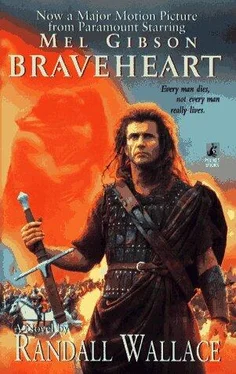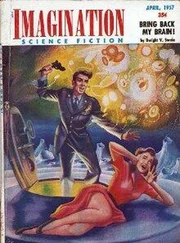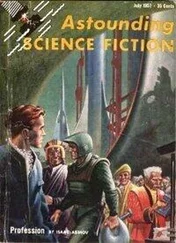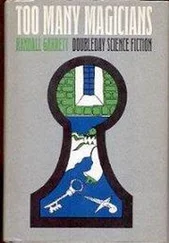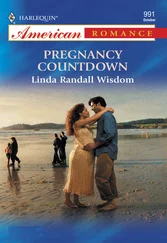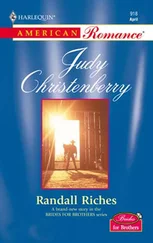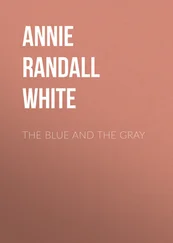Still Wallace did not look at him.
The aristocrat who had attempted to head Bouchard off now tried once again, laughing and saying, “Come Claude, you are drunk, so drink with us some more.”
“I am not drunk!” Bouchard screamed. Wallace’s refusal to acknowledge him was making him ever more furious. “Look at me! Look at me!”
Wallace lifted his eyes. It should have frightened Bouchard; it frightened everyone else in the room. But Bouchard only made a face, pursing his lips and blowing out his cheeks in a look of mock ferocity. “So you are William Wallace!” the Frenchman bellowed. “The military genius! The one who is so smart he gets his entire army slaughtered! Yes, yes, you have much to teach us!”
Slowly, Wallace looked down again at his food.
“Don’t look away from me! I am a true general of France!” This statement might have found several to dispute it, solely among those present; the presence of the king’s relatives, along with the sons, nephews, and cousins of France’s other noble families, among the army’s leadership had not helped then drive the English from their territory. Generals like Bouchard were present at banquets and not on battlefields. “Do you hear me! I command you to look!” He snatched Wallace’s shoulder with one hand and with he other withdrew the jeweled dagger he carried in the blue sash at this waist. He thrust the blade against Wallace’s throat. “You insolent common bastard. You think you can ignore me? I will teach you to fight! I will—”
Those were his last words.
PHILIP THE FAIR WAS UNABLE TO KEEP HIS MIND ON WHAT HIS ADVISORS WERE SAYING. He had tried to listen; for days and days he had tried. But now there was just so much droning on and on. Every day he would say to them, “What should I do with William Wallace?” and every day the talk would begin, so that he no longer heard individual words or arguments or could remember which side of the issue anyone took, since all of them seemed to take both sides all the time.
Whenever they moved on the other business of the kingdom, Philip kept thinking about Wallace locked away in his prison for the killing of a royal relative. And even Philip could not think clearly anymore.
Today it became too much for him. In the middle of a discussion about building roads—at least that had been the topic when the king last heard what his advisors were saying—he stood abruptly, walked to the center of the room and ordered everyone out. “Go. Now. All of you!” he said loudly and forcefully. “Yes, yes, everyone!” All of you out!” After a brief moment of surprise, for their king never behaved rashly, the advisors obeyed quickly, streaming toward the door. Herding them like a sheep dog chasing the flock into its pen, the king drove them on with “Leave me alone! I am not to be disturbed! Shut the door!”
And with the closing of the door, and its heavy wooden sound echoing through the royal audience chamber, the king found himself in blessed solitude.
He did not know what to do next; it was so seldom that he found himself all alone. He was uncomfortable standing there in the center of the great room, with no one telling him what to do next. So he began to pace from door to window and back again. At first he thought of nothing, just listened to the sound of his heels upon the polished stone floor; then he began to turn the problem over in his head: what must he do with William Wallace.
Then he heard the door opening. Philip was pacing toward the window when he heard the latch clattering and he could scarcely believe the sound. His normally even temperament began to erupt; he whirled and had already started shouting, “What is this? Did you not understand—“ when he saw her. “Isabella!”
“Greetings to you, great king!” The Princess of Wales, Philip of France’s niece, sank in a respectful curtsey, but her face was radiant, and the king himself was glowing with the unexpected joy of seeing her. He hurried to her, seized her hands, pulled her up, and kissed her cheeks.
“I had no idea you were coming!” he said, searching his scattered thoughts for the possibility that his aides could have mentioned such a thing, and he had failed to not it, as if that were possible.
“Nor did I, “ Isabella said.
“But how…?
“I came without sending word. Since France is my county, too, and I have my own French guards to escort me, it didn’t seem necessary. The only trouble I had was getting through this last door. You have some gentlemen out here who seemed to think that entry was quite impossible.”
The king threw back his head and laughed. “Impossible for everyone but you!” He loved this beautiful young woman who stood before him, the daughter of his youth. He had reared her in the customary way, with nursemaids and tutors and all the traditional remoteness of king to female child. But she had always stirred up in him feelings that had made painful her betrothal and marriage to a foreign prince. The sight of her now brought back memories of summer days in the country when no court counselors rained schemes and questions and advice upon his head, and he had time to watch lovely girls become women right before his eyes, strolling across flowered lawns and in and out of the shade when the young aristocrats of France visited one estate after another with no other purpose than to enjoy life and get to know their peers. Isabella had made him proud even then. She was never intimidated by him or anyone else; if she wished to speak, she spoke; if she wished to dance, she danced; if she wished to ride, she rode; and it was that spirit that made her more than beautiful and made him proud.
And look at her now! She had been traveling for days, and he could see that she was tired, but her eyes were keen, she was full of purpose.
“We’ll have food, wine,” he said and started toward the door to call his servants.
“In a little while,” she said. “We’ll visit at dinner if you can find the time to dine with me.”
“We’ll dine together every night. We’ll make a month of banquets!” But then the cloud of reality passed over his face. “That is, if you r visit is official, and we can behave with the open hospitality of diplomacy. If it unofficial, you are just as welcome.”
He did not add that too much formal attention paid to her, though she was his own daughter, could be a political embarrassment for them both. Obviously she knew that, to have come so quickly and quietly. The soldiers of France and England were battling each other, but both kings maintained the public pretense of keeping the conflict at arm’s length, blaming belligerent nobles with unruly private armies for eth clashes that took place in the constant struggle for territory and power. This was a kind of royal insurgence; the kings could negotiate without loss of face or capitulate without the actual loss of one or the other’s head.
“My visit is official,” Isabella said. “But it is not do be public.”
“Then come,” Philip said, leading her to the great table. “Come and sit down.” They settled into the deep chairs, Philip at the head of the huge expanse of polished plank, and Isabella at his right hand. He poured her wine from the flask in front of him. She nodded her thanks but did not drink.
“I have been sent,” she said. “We have heard in London that you have a… certain visitor.”
He was pouring a drink of wine for himself; he stopped before his cup was full and set the flask down.
“I do, yes. William Wallace.”
“You appear irritable.”
“No, it is not at you. I am unsettled that new travels so fast, especially to a court where I am — an adversary.”
“My father-in-law has many ears listening for work of this man who visits you. Is he…comfortable?”
Читать дальше
